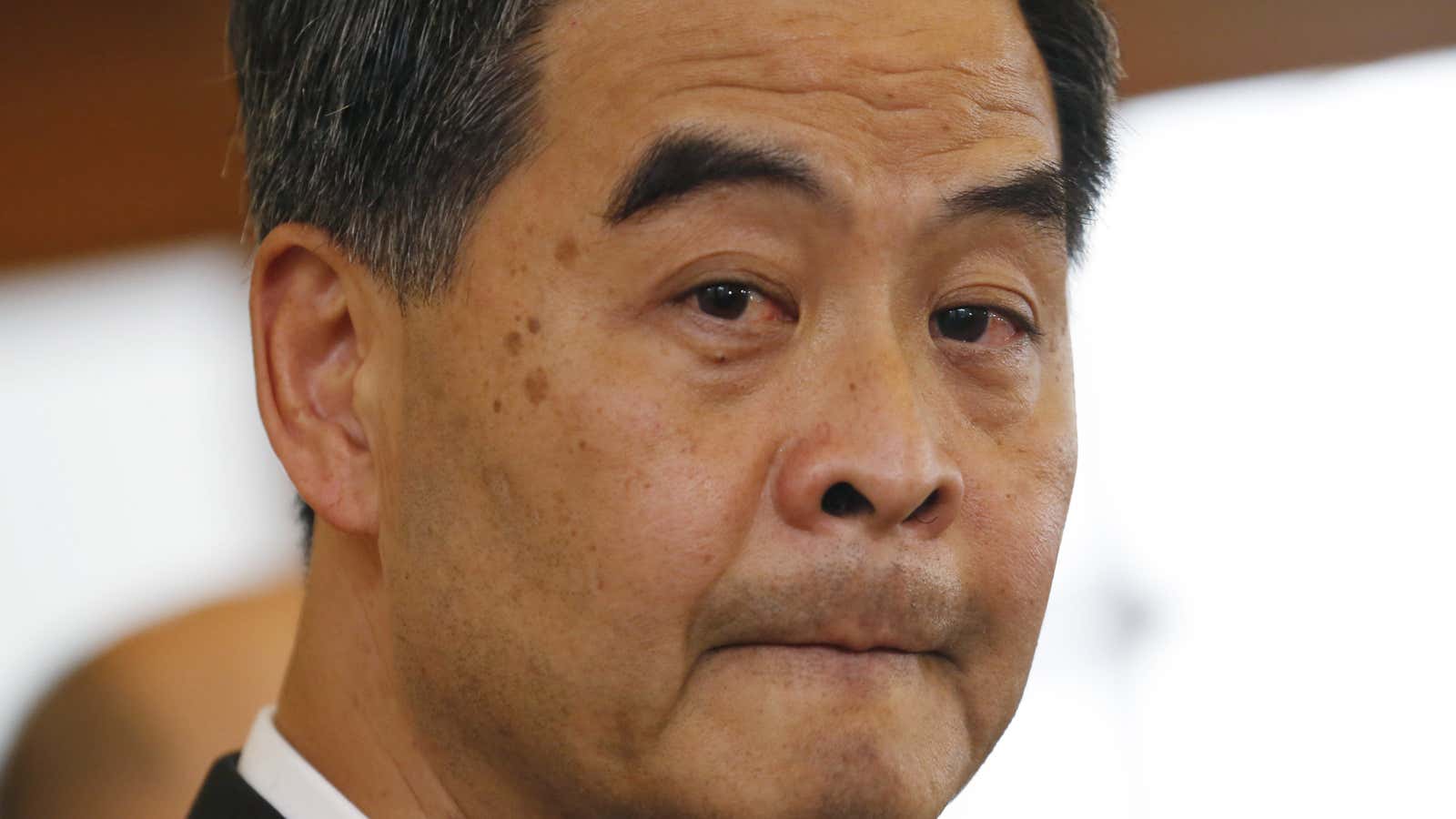HONG KONG—Hong Kong’s Umbrella Movement protesters have been demanding that the city’s top official, CY Leung, step down for weeks now. They may soon be joined by many more of the city’s 7 million residents, after a controversial interview last night in which Leung suggested that election reforms sought by the protestors would invite undue influence from the city’s poor.
Speaking at his official residence, a colonial-era mansion set above the city—it’s furnished with crystal chandeliers and guarded by massive stone lions—Leung addressed three foreign newspapers that target Hong Kong’s wealthy international community. Allowing the entire voting population of Hong Kong, some 5 million people, to directly nominate candidates for the city’s top official position would be a mistake, Leung said:
“If it’s entirely a numbers game—numeric representation—then obviously you’d be talking to half the people in Hong Kong [that] earn less than US$1,800 a month. You would end up with that kind of politics and policies.”
Leung gave the interview to the Financial Times, The New York Times, and the Wall Street Journal. The three publications frequently keep their content behind a paywall, but their write-ups of the interview were quickly circulated on social media, where information about Hong Kong’s protests has spread quickly:
Economic inequality in Hong Kong is the highest in the developed world, and among the highest in East Asia, as Quartz has reported before. About a third of the population lives in public housing, and one in five lives below the poverty line.
Currently, candidates for Leung’s job are chosen by a 1,200-member nominating committee that is heavily weighted by business interests. While the protests in Hong Kong’s central business district have been mostly student-driven, and spurred by demands for direct nomination, more spontaneous protests have sprung up in the working class neighborhood of Mong Kok, powered in part by dissatisfaction over public housing policies.
Leung himself is the son of a police officer, but the millions he made as a real estate executive earned him the nickname “emperor of the working class.” Already he has been hung in effigy, depicted as Dracula, and openly told to go to hell during the protests in Hong Kong.
Government representatives (but not Leung) and representatives from the protest movement are set to meet today, for the first time since the protests started three weeks ago. Leung said last night that his fellow officials would be “all ears.” They may get an earful on Leung’s latest public pronouncements.
